Get the Protein You Need


The Power of Protein
Everybody needs protein. But when you’re over 50, you need to eat more of it than you used to. That’s because your body isn’t as good at using protein to build and maintain muscle as it once was. Not only does it protect your muscles, protein can also help:
- Strengthen skin
- Boost your body’s defenses against illness
- Keep hearing sharp as you age

How Much Protein Do You Need?
The recommended daily amount for adults is .36 grams per pound of body weight. But research shows older people do better with at least .45 grams per pound. (That’s 67.5 grams for a 150-pound person.) To get that, you could eat:
- 1 medium chicken breast
- 1 cup of Greek yogurt, and
- 2 tablespoons of peanut butter
You may need more if you have muscle loss, or less if you have kidney disease. Talk to your doctor about what’s right for you.
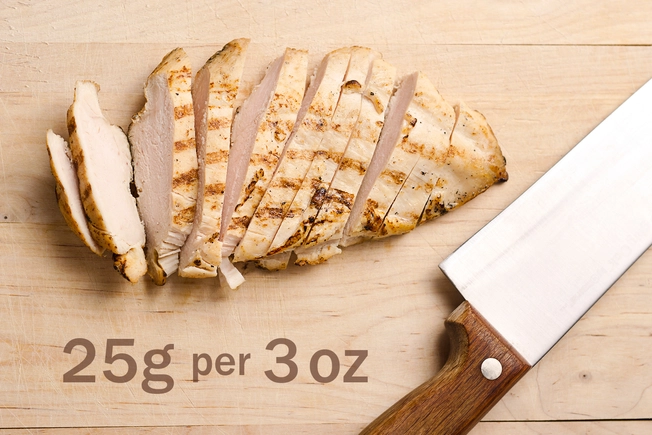
Poultry and Eggs
Chicken breasts are a go-to for many of us. They’re inexpensive, cook fast, and have 25 grams of protein per 3-ounce serving. Bored with them? Try portion-size slices of turkey breast.
A large egg has 6.24 grams of protein and just 71 calories. It also has 184 mg of cholesterol. But that’s not a problem if you’re healthy. If you have high cholesterol, heart disease, or diabetes, ask your doctor or dietitian about eggs. Or just eat egg whites.
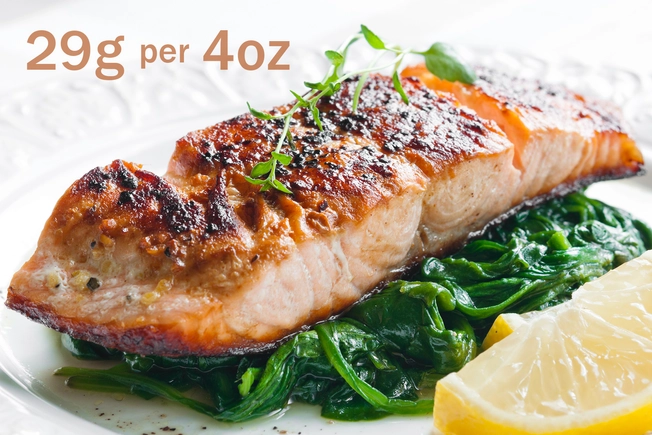
Seafood
Even some people who think they don’t like fish fall for salmon. What’s not to love? It’s got moist texture, mild flavor, and 29 grams of protein in a 4-ounce serving. It’s also low in saturated fat and high in heart-healthy, brain-boosting omega-3 fatty acids. If salmon isn’t your thing, tuna, sardines, or trout will do the trick. Aim for 4 ounces of fish two times a week.
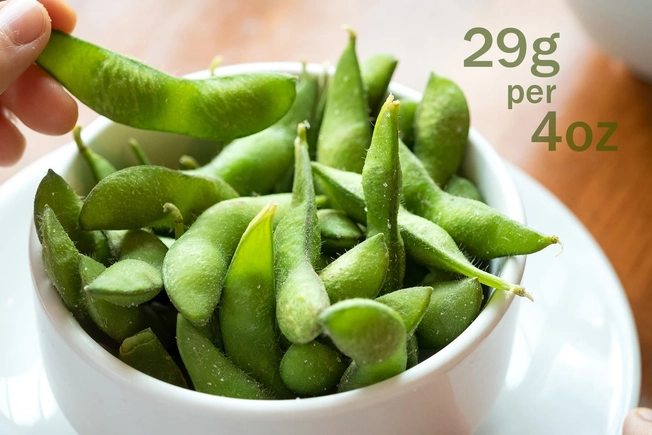
Soybeans
Vegetarians have known the secret for years. Soybeans have a lot of protein. Four ounces packs 29 grams, more than a 3-ounce steak. And soy milk has nearly as much protein as the dairy type. Soybeans contain a type of plant estrogen. But eating normal amounts won’t make your own hormones go haywire. If you’re on hormone therapy or have had breast cancer, check with your doctor before using soy supplements or powders.
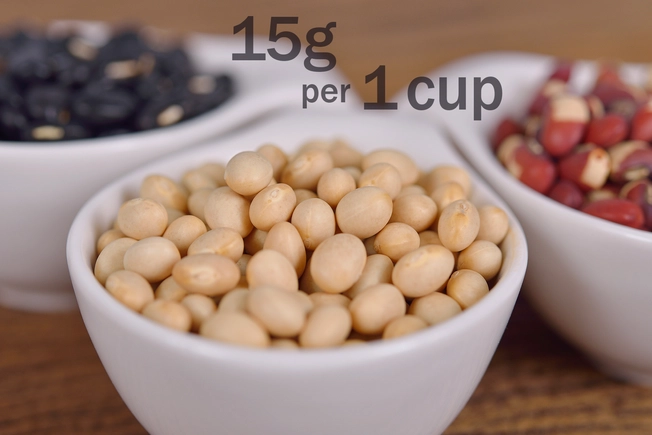
Vegetables and Beans
Beans, be they red, black, or white, are plant-based protein powerhouses. One cup can have 15 grams of protein or more. The versatile, inexpensive bean is also a great source of fiber. They’re filling and heart-healthy. Other veggies get in on the act, too. A cup of peas has 8.5 grams of protein, and a medium baked potato, 4.5 grams.
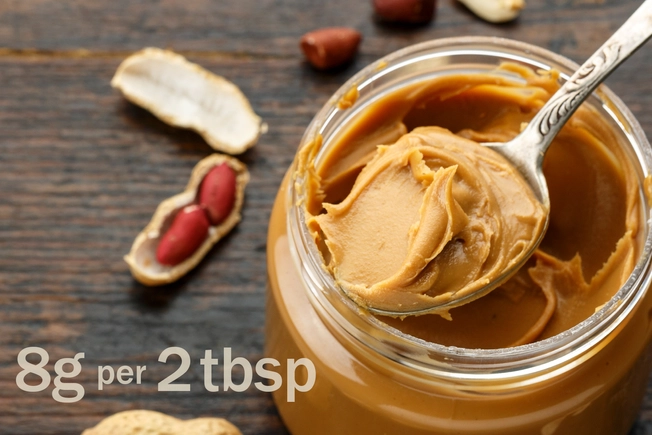
Nuts and Seeds
Nuts, seeds, and nut butters pack lots of protein into a small, convenient package. You can get 8 grams of protein from:
- 2 tablespoons peanut butter
- ¼ cup almonds
- ⅓ cup pistachios or cashews
- ½ cup walnuts
Nuts are high in calories. But one study showed that eating small amounts instead of other snacks could actually make you less likely to gain weight. Eating them several times a week also cuts your risk of a heart attack.
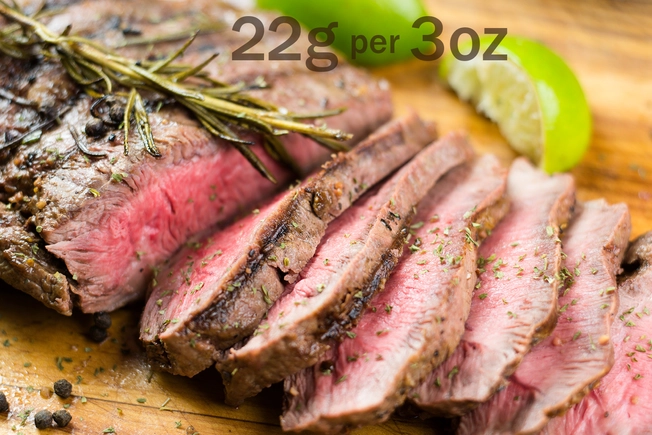
Red Meat
It gets a bad rap, but it’s OK for meat lovers to enjoy the occasional serving of beef, lamb, or pork. A 3-ounce portion of red meat sets you up with 22 grams of protein. Go for lean types like sirloin, tenderloin, and top round. Watch your portion size, too. Three ounces is about the size of a deck of cards.
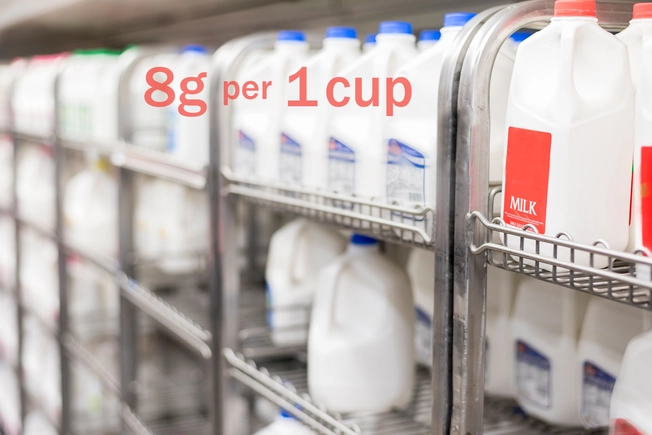
Dairy
Drink a cup of skim milk, and you’ll add 8 grams of protein to your daily total. Or up your game with a carton of fat-free Greek yogurt, with up to 20 grams. Three daily servings of fat-free or low-fat dairy will boost your bones and slow muscle loss. If you follow a plant-based diet or can’t digest dairy, soy milk is a good protein option (6.3 grams per cup). Almond, coconut, and rice milks all have 1 gram of protein or less.

Protein Drinks
For best results, get your protein from foods. Also, space them through the day instead of loading up at one meal. But if you have trouble eating enough, protein shakes, powders, bars, and supplements can help. To control sugar and additives, make your own protein drink. Blend ½ cup fat-free Greek yogurt, ½ cup soy or skim milk, and ½ cup fruit to get about 14 grams. Add a tablespoon of peanut butter to amp the protein up to 18 grams.
